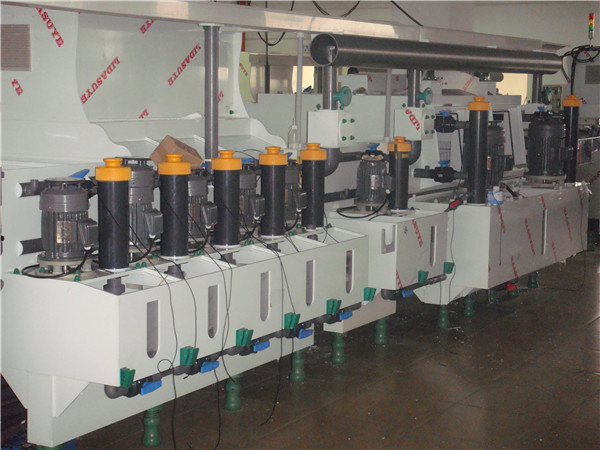Nov . 11, 2024 21:50 Back to list
hdpe tube
The Advantages and Applications of HDPE Tubes
High-Density Polyethylene (HDPE) tubes have emerged as a versatile solution in various industries, thanks to their excellent properties and performance attributes. This article delves into the characteristics, advantages, and applications of HDPE tubes, highlighting their significance in modern manufacturing and environmental sustainability.
Understanding HDPE
HDPE is a thermoplastic polymer made from petroleum. It is known for its high strength-to-density ratio, which makes it an ideal material for a wide range of applications. HDPE exhibits excellent resistance to impact, moisture, and chemicals, making it suitable for both indoor and outdoor environments. Its lightweight yet durable nature provides significant advantages over traditional materials such as metal and wood.
Benefits of HDPE Tubes
1. Durability One of the most significant advantages of HDPE tubes is their exceptional durability. They can withstand harsh weather conditions, UV radiation, and chemical exposure. This durability translates to a longer lifespan and reduced maintenance costs.
2. Corrosion Resistance Unlike metal pipes, HDPE tubes are inherently resistant to corrosion. This property makes them particularly suited for applications involving reactive substances, preventing potential failures and leaks that can result from corrosion in metal components.
3. Flexibility HDPE tubes exhibit significant flexibility compared to other materials, allowing them to bend without breaking. This feature is advantageous during installation, as it can accommodate various layouts without requiring numerous joints or fittings.
4. Lightweight The lightweight nature of HDPE tubes simplifies transportation and installation. This characteristic reduces labor costs and time, making it a cost-effective option for many projects.
5. Recyclability In an era where environmental awareness is paramount, HDPE's recyclability stands out. Used HDPE tubes can be reprocessed into new products, minimizing waste and promoting sustainability in manufacturing processes.
6. Cost-Effectiveness While the initial investment in HDPE tubes may be comparable to other materials, their long-term savings due to durability, low maintenance, and reduced installation costs often make them a more economical choice.
hdpe tube

Applications of HDPE Tubes
The versatility of HDPE tubes leads to their use in a wide array of applications across different sectors
1. Water Supply HDPE tubes are widely used in water supply systems due to their resistance to corrosion and chemicals. They are ideal for both potable water and wastewater applications, ensuring the safe transport of water without contamination.
2. Drainage Systems The flexibility and durability of HDPE make it an excellent choice for drainage systems. It can handle varying temperatures and moisture levels, making it effective in both residential and commercial drainage projects.
3. Gas Distribution HDPE tubes are increasingly being used in the distribution of natural gas. Their properties ensure safety and reliability in transporting gases over long distances, minimizing the risk of leaks.
4. Telecommunications With the rise of digital communication, HDPE tubes are utilized for protecting fiber optics and electrical cables. Their protective qualities ensure that these sensitive components are shielded from environmental factors.
5. Agriculture In agricultural applications, HDPE tubes are used for irrigation systems and drainage. Their durability and resistance to soil chemicals make them ideal for conveying water and nutrients efficiently.
6. Industrial Use Many industries incorporate HDPE tubes in manufacturing processes, storage, and transportation of various substances. Their ability to withstand high pressures and chemicals makes them essential in industrial applications.
Conclusion
In conclusion, HDPE tubes are a robust, flexible, and environmentally friendly solution across a multitude of industries. Their remarkable properties contribute to their widespread use in applications ranging from water supply and drainage systems to telecommunications and agriculture. As industries continue to prioritize sustainability and efficiency, the demand for HDPE tubes is expected to grow, solidifying their role as a material of choice for the future.
-
HDPE Drainage & Irrigation Pipe - Durable, Efficient Solutions
NewsAug.01,2025
-
Premium PVC Transparent Pipe: Durable & Clear Solutions
NewsJul.31,2025
-
High-Quality UPVC Electrical Pipe for Safe Wiring Solutions
NewsJul.30,2025
-
Premium PVC Pipe Fitting Supplier – Durable & Leak-Proof Solutions
NewsJul.30,2025
-
High-Gloss PVC Rigid Sheet for Durable & Smooth Surfaces | Wholesale Supply
NewsJul.29,2025
-
High Quality PVC Soft Sheet for Flexible and Durable Applications
NewsJul.29,2025

